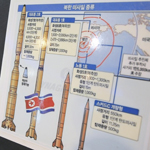Registration
You will receive an email confirming your registration.
IMGXYZ1266IMGZYXAs North Korea defies international calls to abandon its nuclear ambitions, the international community increasingly looks to the United States and China to lead the effort to reign in the Kim regime. Carnegie Beijing co-hosted a closed door meeting with the Columbia Global Center and the Council on Foreign Relations on Northeast Asian security to address how to approach the unpredictable North Korean leadership.
Succession Confusion
There was general agreement among forum participants that North Korea’s launch of a long-range missile in early April and its continued aggressive posturing reflect its own domestic uncertainty over succession. Whereas Kim Jong-il’s father, Kim Il-sun, had initiated succession plans 20 years prior to his death, the younger Kim has only recently elevated relatives to positions of power.
The sudden decline in Kim Jong-il’s health has compelled the North Koreans to hastily implement a succession plan. The urgency of finding a suitable replacement has placed enormous pressure on the DPRK’s political apparatus, resulting in its adopting more intractable positions than it normally takes.
North Korean Strategy Amidst Chaos?
Although many attribute the eccentricity of Kim’s policies to the regime’s personality cult, some participants suggested that Kim has a longer-term strategy: dramatic escalation and de-escalation has allowed North Korea to extract step-by-step concessions from the international community. Particularly vis-à-vis the United States, Kim seems to have earned direct negotiations and recognition of North Korea’s nuclear capabilities without having conceded much in return.
U.S. and China: Differing Engagement Strategies
Participants were divided as to whether the regime’s brinkmanship would compel either the United States or China to respond more forcefully. While some argued that the United States can do nothing more than contain proliferation and wait for regime change, others warned that President Obama could not afford to be complacent. He has already struggled to achieve his objectives in Afghanistan through a multilateral approach; domestic political pressure and conservative critiques of his security policy may force him to take a tougher line with the DPRK. The intractability of the Kim regime has made even moderates more hawkish, narrowing Obama's policy options.
China was one of the sole defenders of North Korea’s assertion that its missile launch was nothing more than a satellite launch. The CCP continues to host DPRK officials in Beijing, as it did with North Korean Premier Kim Yong-Il last month for the 60th anniversary of Sino-North Korean diplomatic ties. Participants predicted that this move signals a softer Chinese posture vis-à-vis the DPRK. Some said that China has to maintain such a stance to ensure its influence on the peninsula; when it took a hard line in 2006 by agreeing with UN Security Council Resolution 1718, it lost much of its diplomatic sway with Kim.
Participants were divided over whether this “good cop, bad cop” strategy would prove effective since it has yet to yield tangible results. If China is to maintain some public support for Kim, then it must work behind the scenes to pressure North Korea to halt its nuclear program. Sanctions have never been an effective tool to change DPRK behavior because
The Future of North Korea: Conflicting U.S. and Chinese Goals?
There was disagreement over the ultimate goals of the United States and China on the Korean Peninsula. A strong Beijing-Pyongyang alliance provides a buffer between China and South Korea, home of nearly 30,000 U.S. troops and marines. It also strengthens U.S. ties with South Korea and Japan. Economically, North Korea has entered into a number of favorable trade agreements with China, and Chinese trade and investment there is estimated at about $2 billion per year. The status quo prevents thousands of North Korean refugees from flooding into northeast China.
If nuclear weapons are essential to the credibility—and thus survival—of the Kim regime, as some participants claimed, then China’s goals may be at direct odds with those of the United States, whose top priorities are denuclearization and nonproliferation.
China and the United do share common interests, including containing North Korea’s nuclear program and preventing South Korea and Japan from going nuclear. The regime’s recent claim that it was re-harvesting plutonium should serve to unite the United States and China in the short term.
